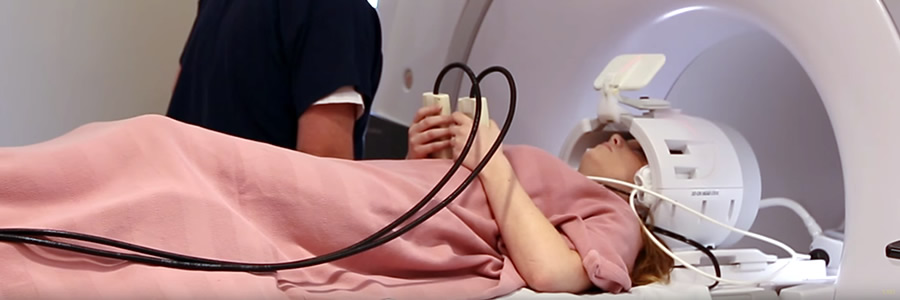What does brain size have to do with Alzheimer's disease?

New research shows that genes may play a role in helping us grow larger brains early in life. Recently published in Nature Neuroscience, a new study analyzed DNA and brain scans of nearly 30,000 people and identified five new genes responsible for how large our brains grow.
"The upshot of the study is the discovery of five different genes that seem to give you a leg up in growing more brain during childhood," said Dr. Owen Carmichael, director of biomedical imaging at LSU's Pennington Biomedical Research Center and one of several hundred authors from around the country on the paper.
One of Carmichael's research interests—and the subject of his 2015 TEDxLSU talk—is how to maintain brain health as we age.
"In parallel to this paper, there is research going on about brain reserve—the idea that protective factors help you ward off the effects of Alzheimer's disease even if it is already attacking the brain. A larger brain size is one of those protective factors. It's the idea that if you have more brain cells to lose then you can lose more of them and still be able to think properly," Carmichael said.
So what does this new research mean for those of us with normal size skulls? Not to worry, Carmichael said. Diet, exercise, intellectual stimulation, and social engagement may help play a role in warding off Alzheimer's disease, so lifestyle factors may help provide an advantage. Still, there is much more work to be done.
"With this new research, we don't know whether these newly-discovered genes that determine brain size have a teeny tiny effect that's completely overwhelmed by lifestyle choices such as diet and exercise or whether they are synergistic. They might make your lifestyle benefit your brain even more, or the genes and the lifestyle might help the brain in entirely separate ways. The biggest take-home at this point is that scientists are going to be able to learn more about the biology behind brain health by learning about what the genes are doing," Carmichael said.
Another takeaway? Continued exploration to discover new genes—and what they mean for our health—is essential.
"The more brain scans and DNA we get from people in our community here in Baton Rouge and around the world, the more it helps us to understand why some people get brain diseases and some don't," Carmichael said.
Find out how you can participate in a research study at Pennington Biomedical by visiting www.pbrc.edu/healthierLA.
You can read the full study online here.
For more information on how you can support this and other projects at LSU’s Pennington Biomedical Research Center, visit www.pbrf.org.



